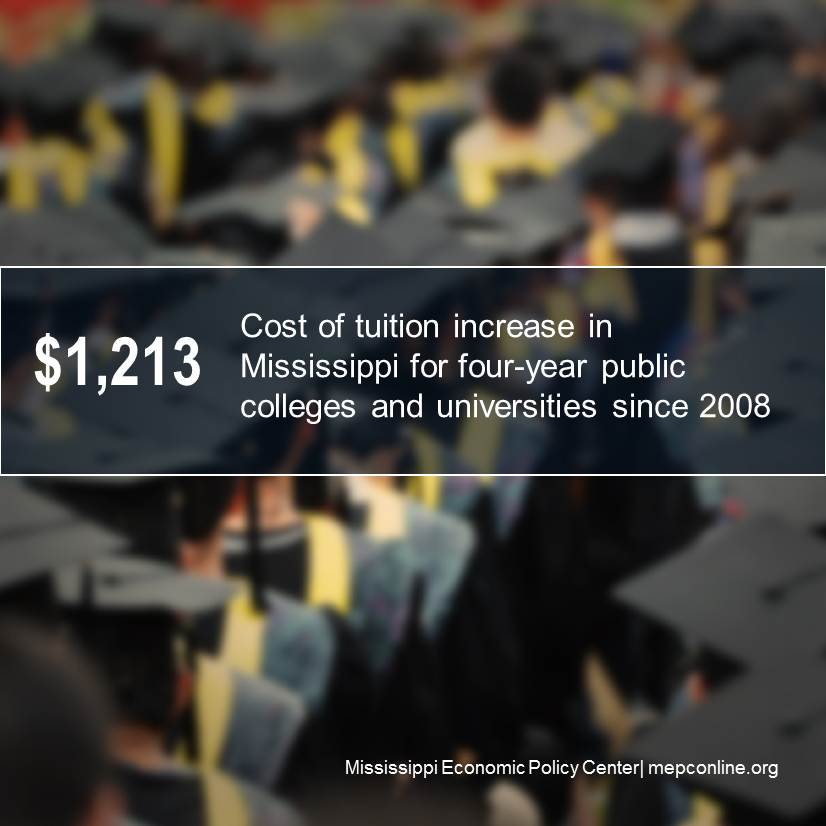Mississippi College Tuition Continues to Rise, Students Footing the Bill
May 1st, 2014
 Since 2008, Mississippi has cut funding for higher education by approximately 25 percent when adjusted for inflation. These cuts have caused tuition at Mississippi’s college and universities to rise at a time when the state’s economy needs more skilled workers. Financial aid for students has not kept up with the increasing costs of a post-secondary education, increasing the likelihood that students are unable to finish college or pursue an education in the first place. Limiting access to higher education will limit opportunities for Mississippi families and our economic growth as a state.
Since 2008, Mississippi has cut funding for higher education by approximately 25 percent when adjusted for inflation. These cuts have caused tuition at Mississippi’s college and universities to rise at a time when the state’s economy needs more skilled workers. Financial aid for students has not kept up with the increasing costs of a post-secondary education, increasing the likelihood that students are unable to finish college or pursue an education in the first place. Limiting access to higher education will limit opportunities for Mississippi families and our economic growth as a state.
A new report from the Center on Budget and Policy Priorities highlights recent shifts in funding for higher education in the state. While per student funding has increased slightly over the past year, since 2008 Mississippi has cut funding for higher education by 25 percent when adjusted for inflation, which represents a reduction of $2,524 per student. In response to this, our state colleges and universities have had to increase their tuition. The average tuition at a public, four-year college in Mississippi has increased 23 percent or $1,213 during this same time period.
Smart investments in public colleges and universities will strengthen Mississippi’s economy. Areas with highly educated residents attract employers who pay competitive wages. Their employees then spend money in the community, boosting the economy of the entire area. That’s what Mississippi needs for our state economy to thrive.
Without this investment, students increasingly have to foot the bill to finance a higher education. These students are taking on unsustainable levels of debt, and rapidly rising tuition is scaring some students away from college altogether. This has significant implications for their career prospects and the state’s future economic capacity. Mississippi needs to find ways to keep debt down and make college affordable for students and their families.
As our state economy continues to recover, our state leaders must make higher education a priority. With more jobs requiring a post-secondary credential, our state cannot afford to be left behind with the type of low-skill, low-wage jobs that our labor market is likely to be composed of as soon as 2018. To adequately fund higher education, our lawmakers must allow state revenue to adequately recover, rejecting unaffordable tax cut proposals.
Michael Mitchell, author of the report, makes it simple, “States that are cutting taxes rather than investing in their colleges and universities are making the wrong choice.” We can’t afford to make the wrong choice here. Mississippi should focus on providing access to quality higher education that will prepare students to become the highly-skilled workers that tomorrow’s economy will demand.






